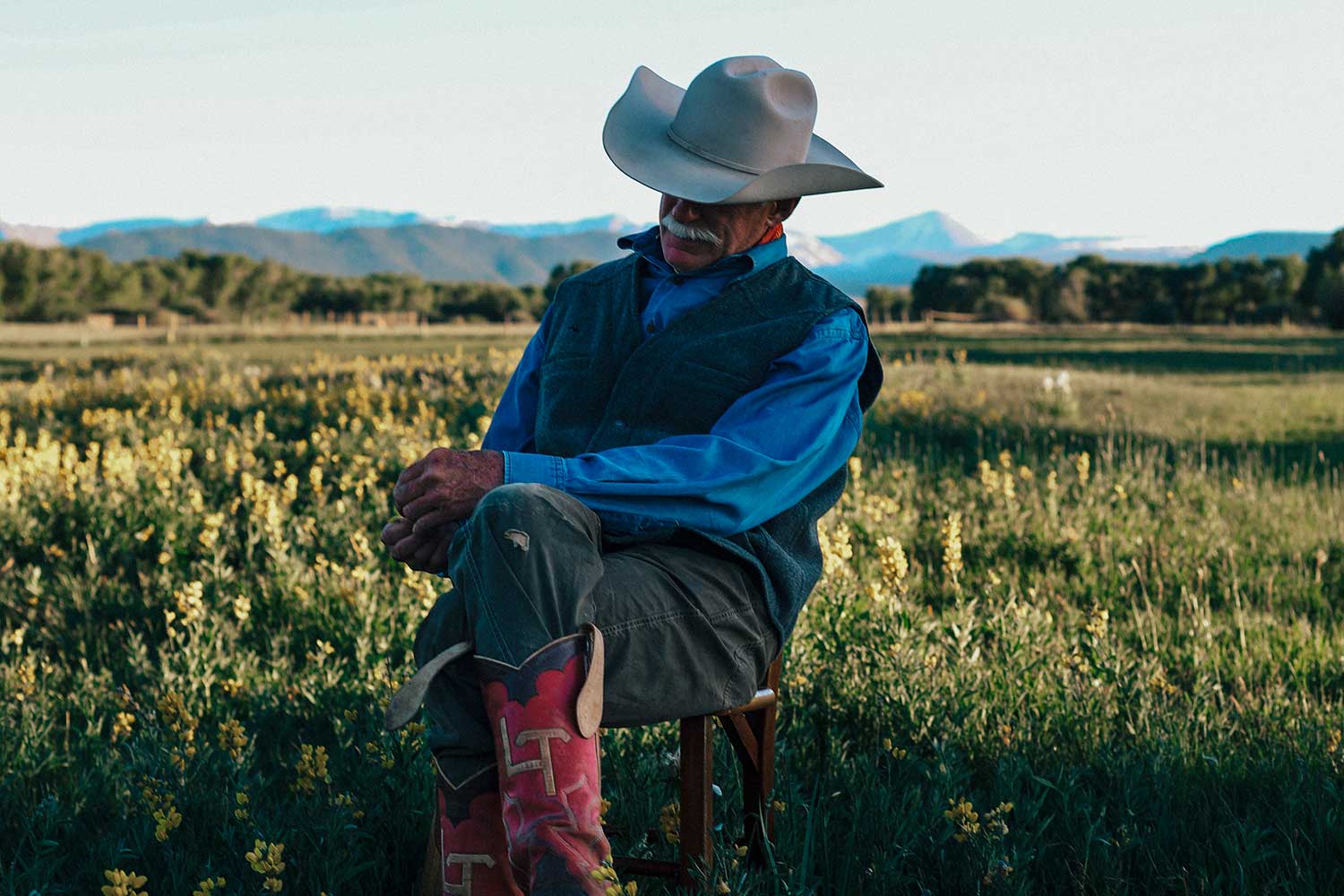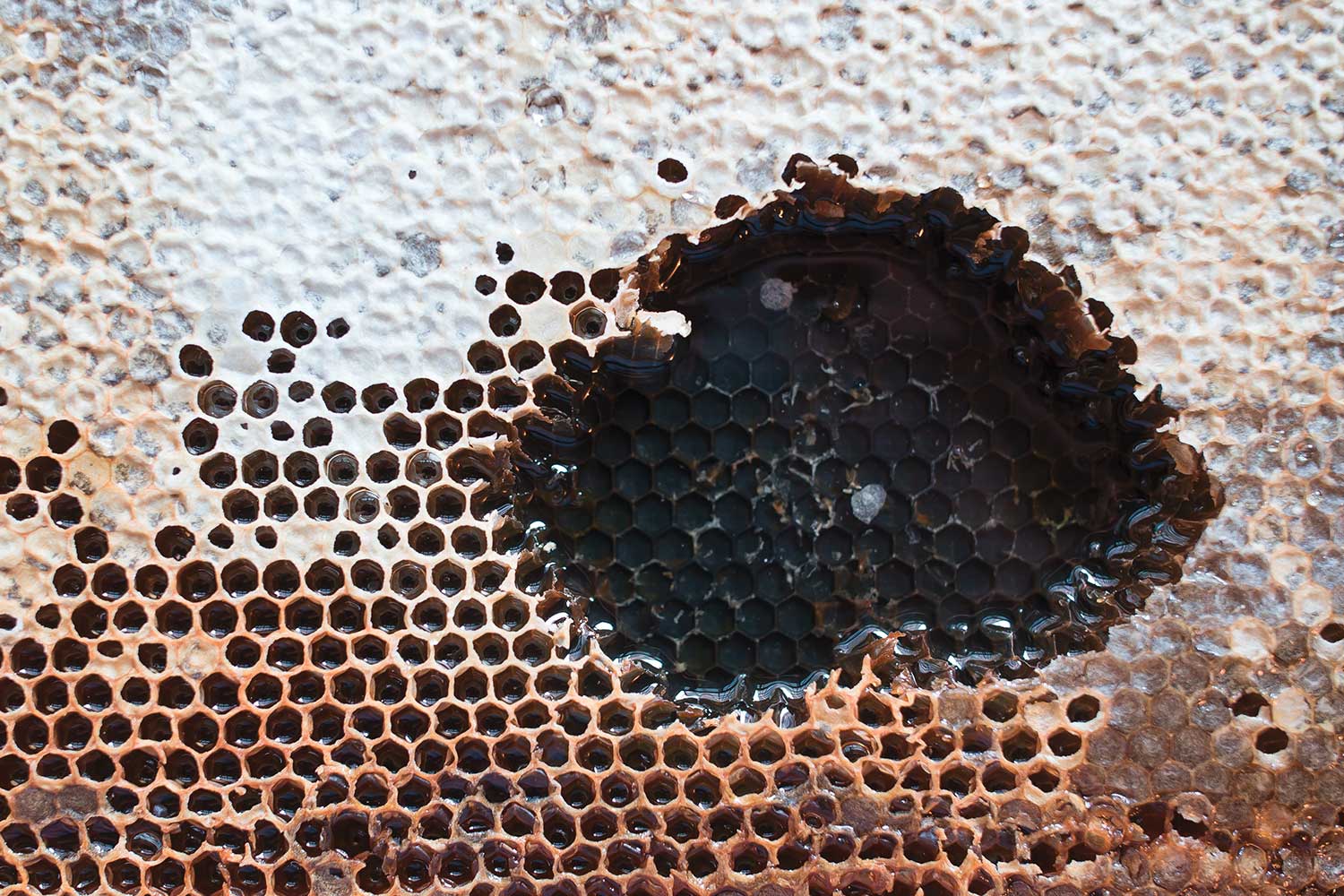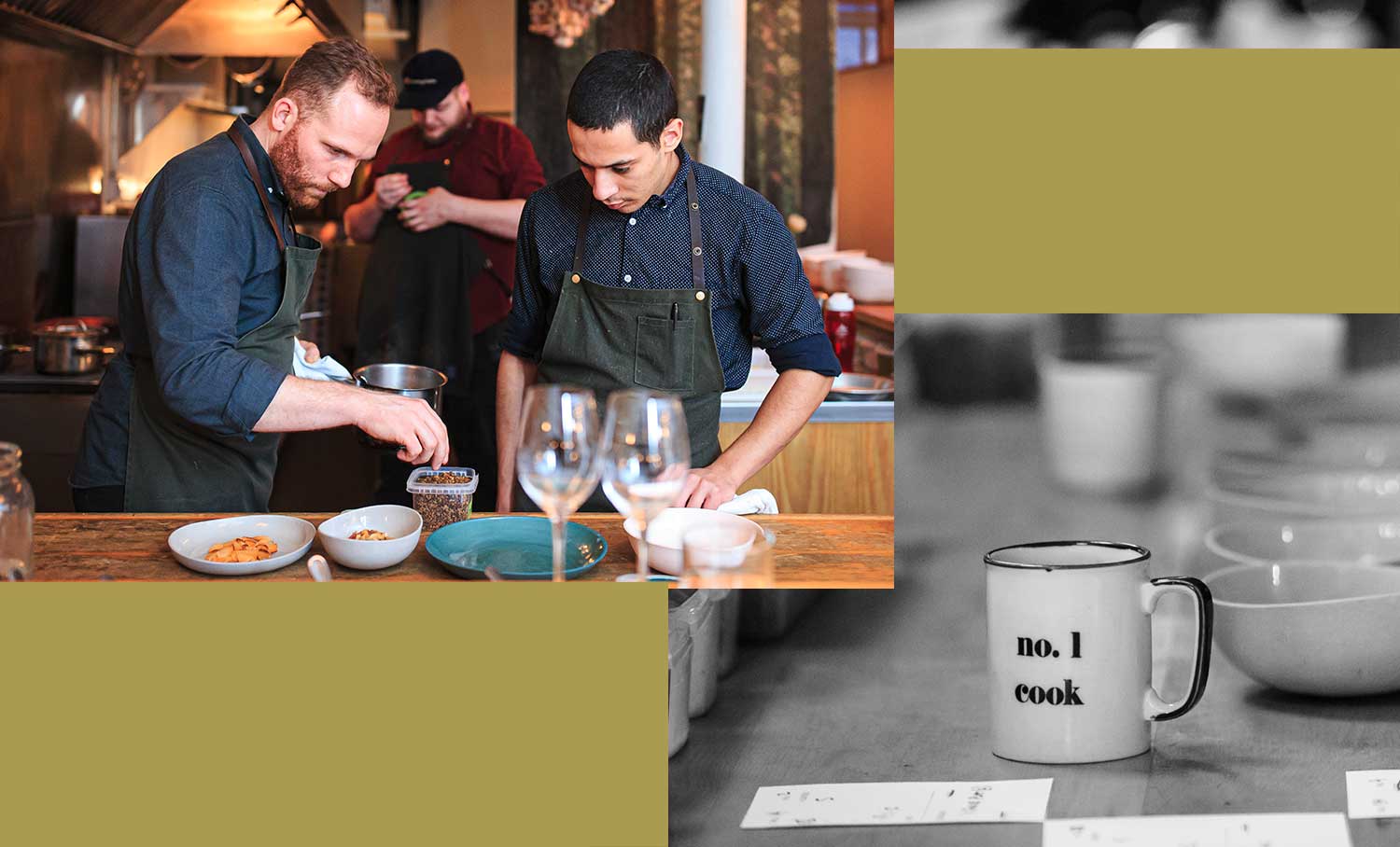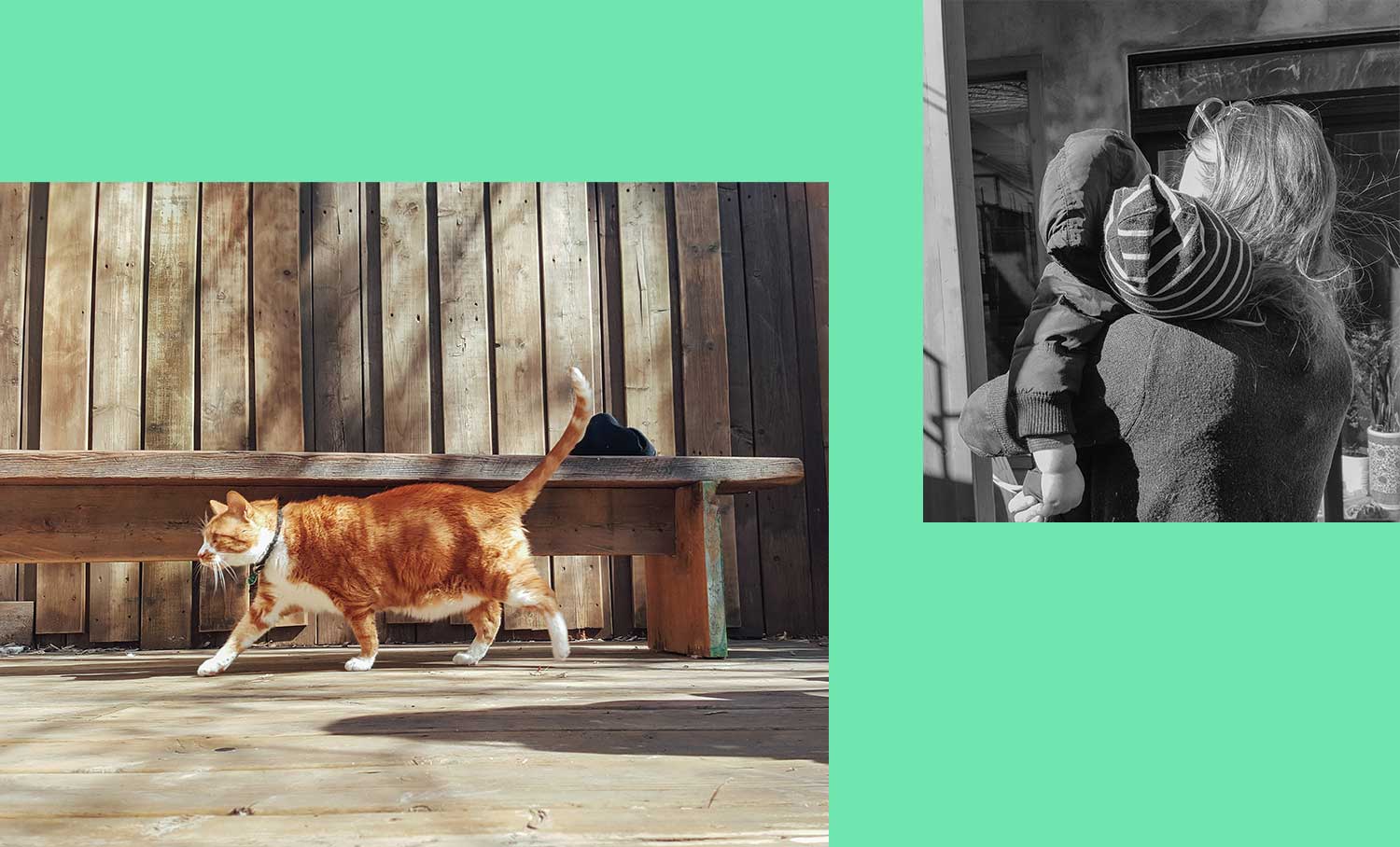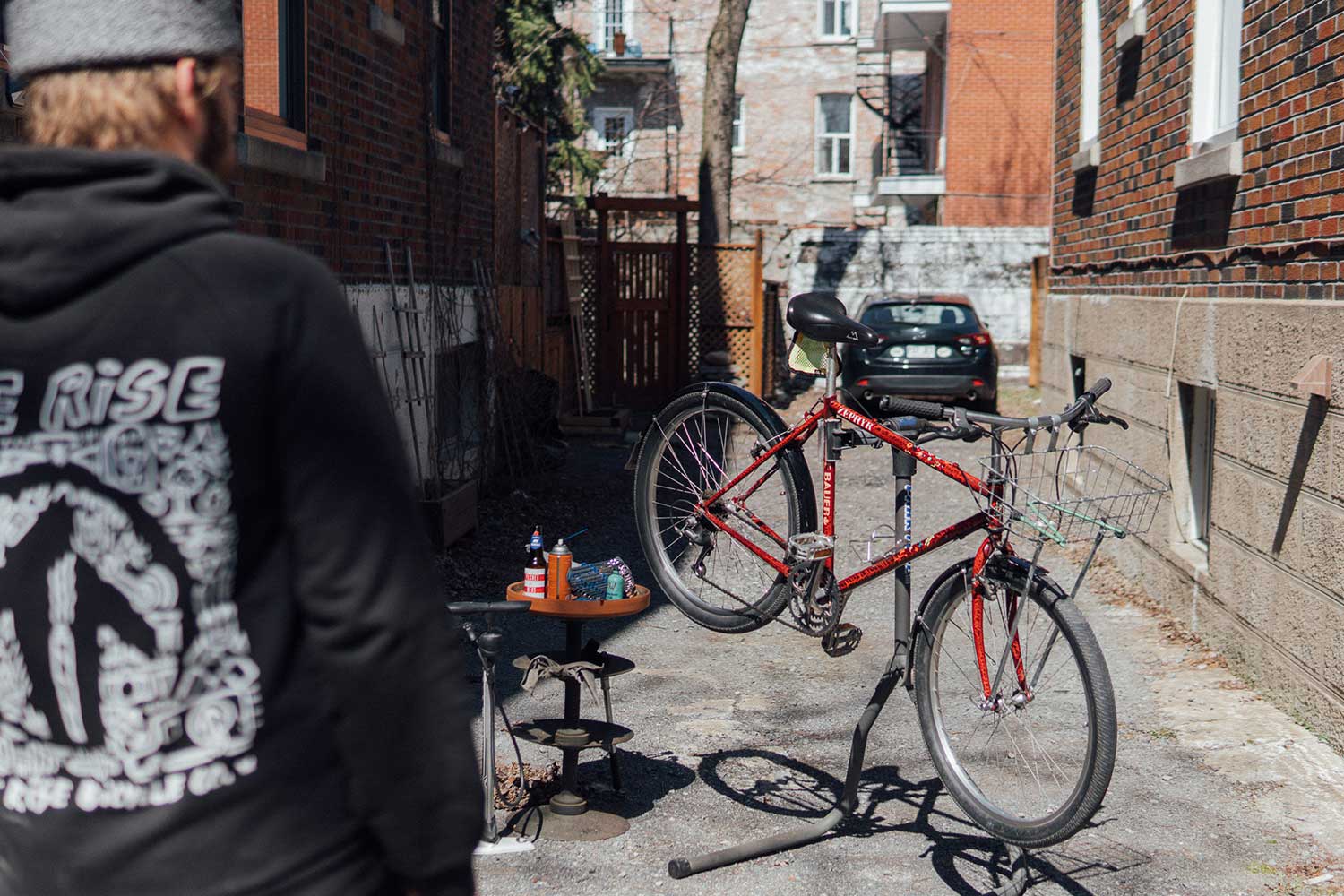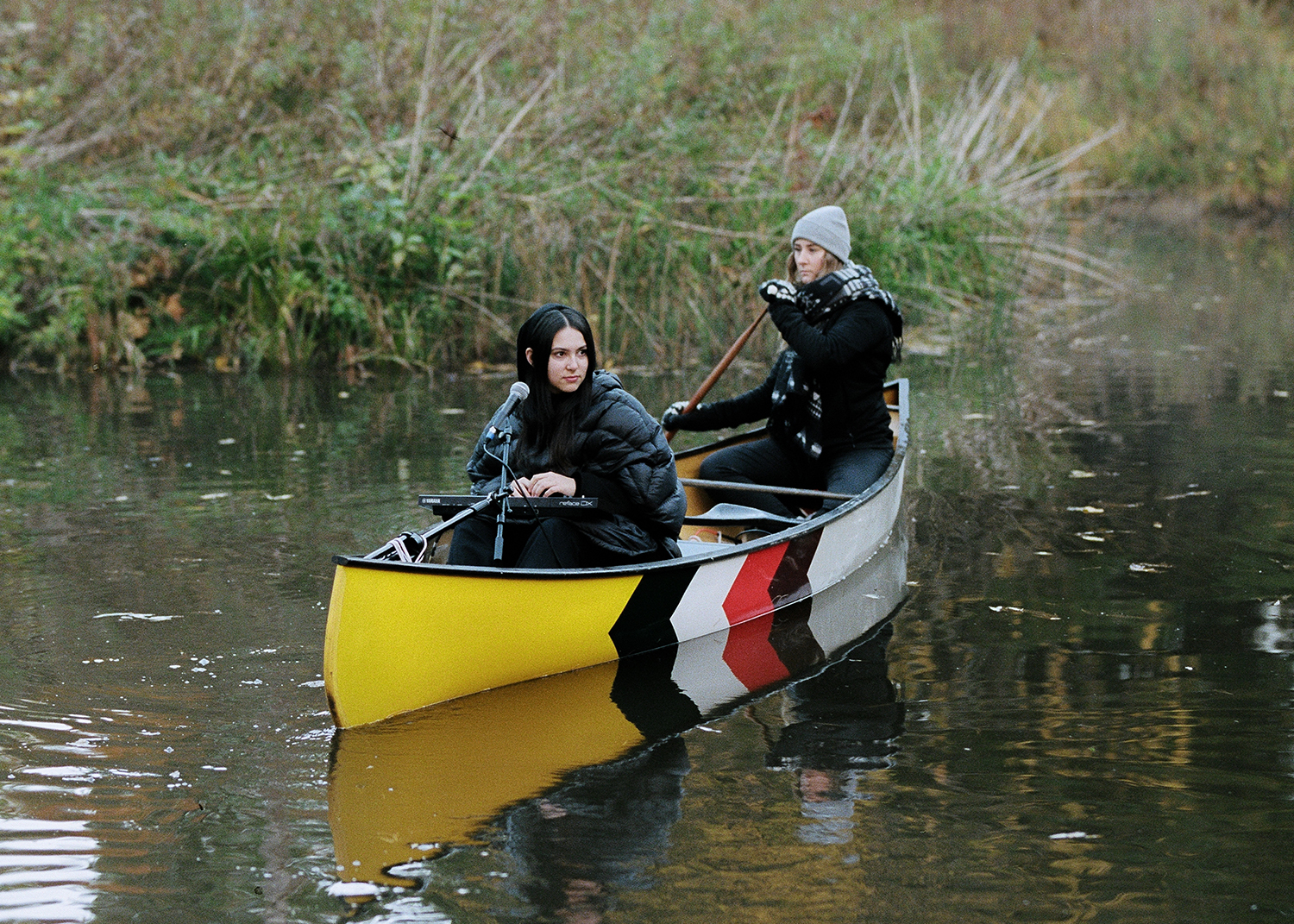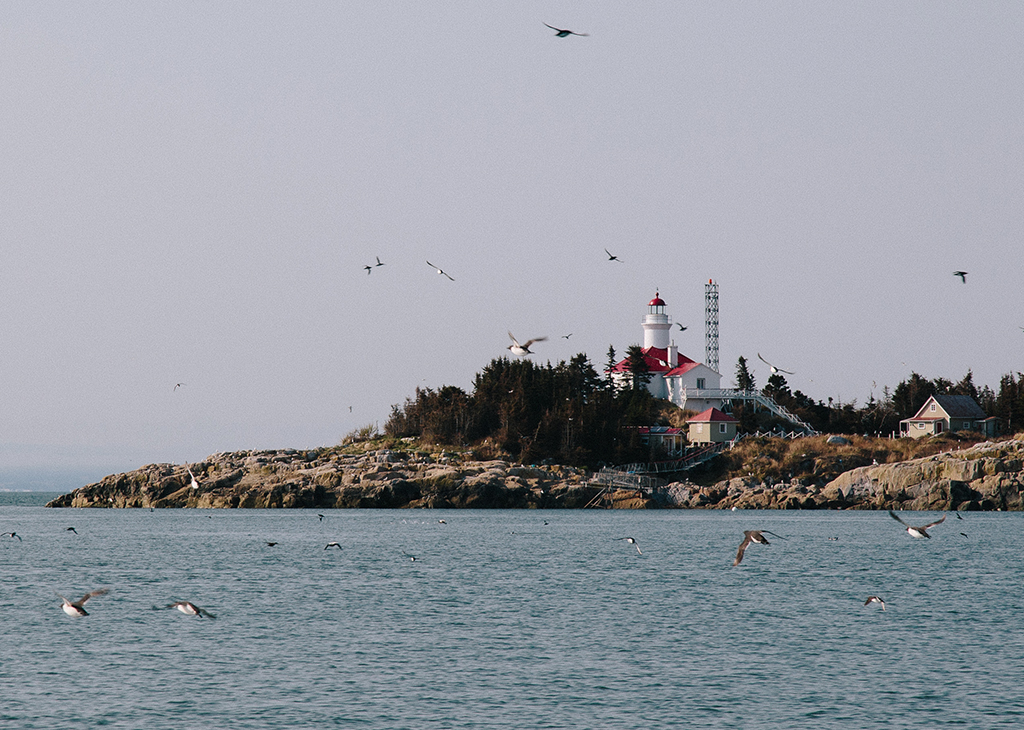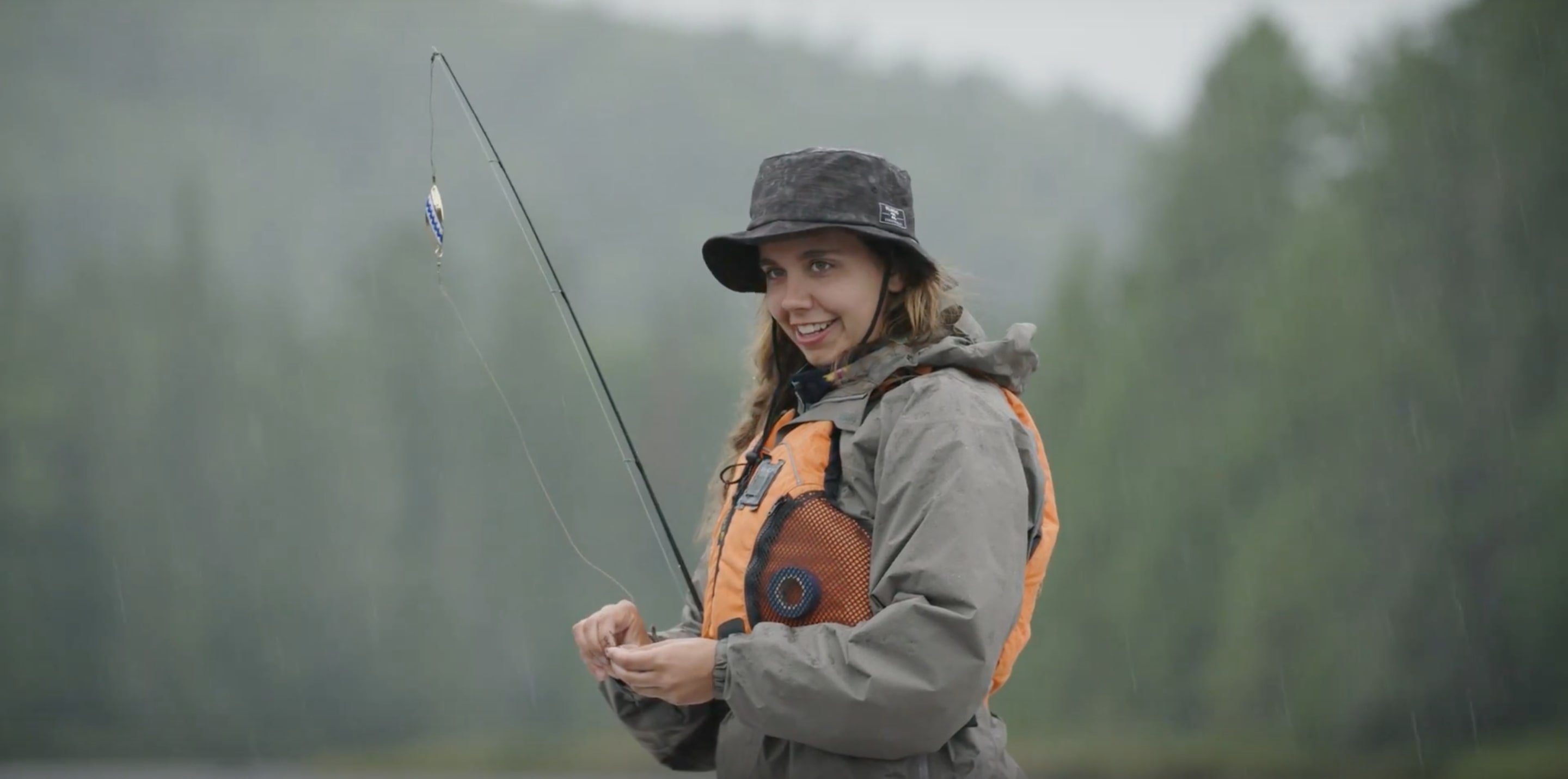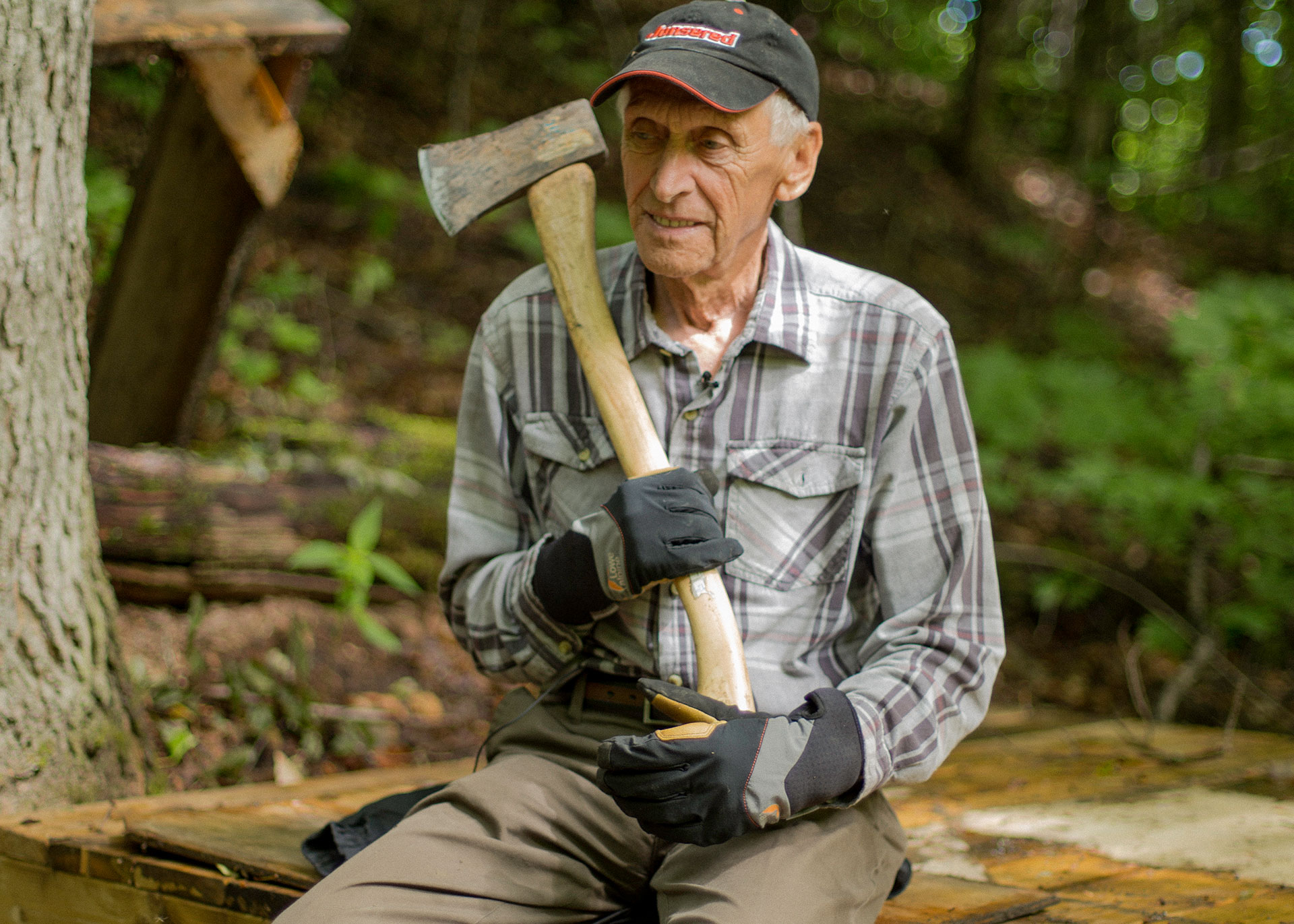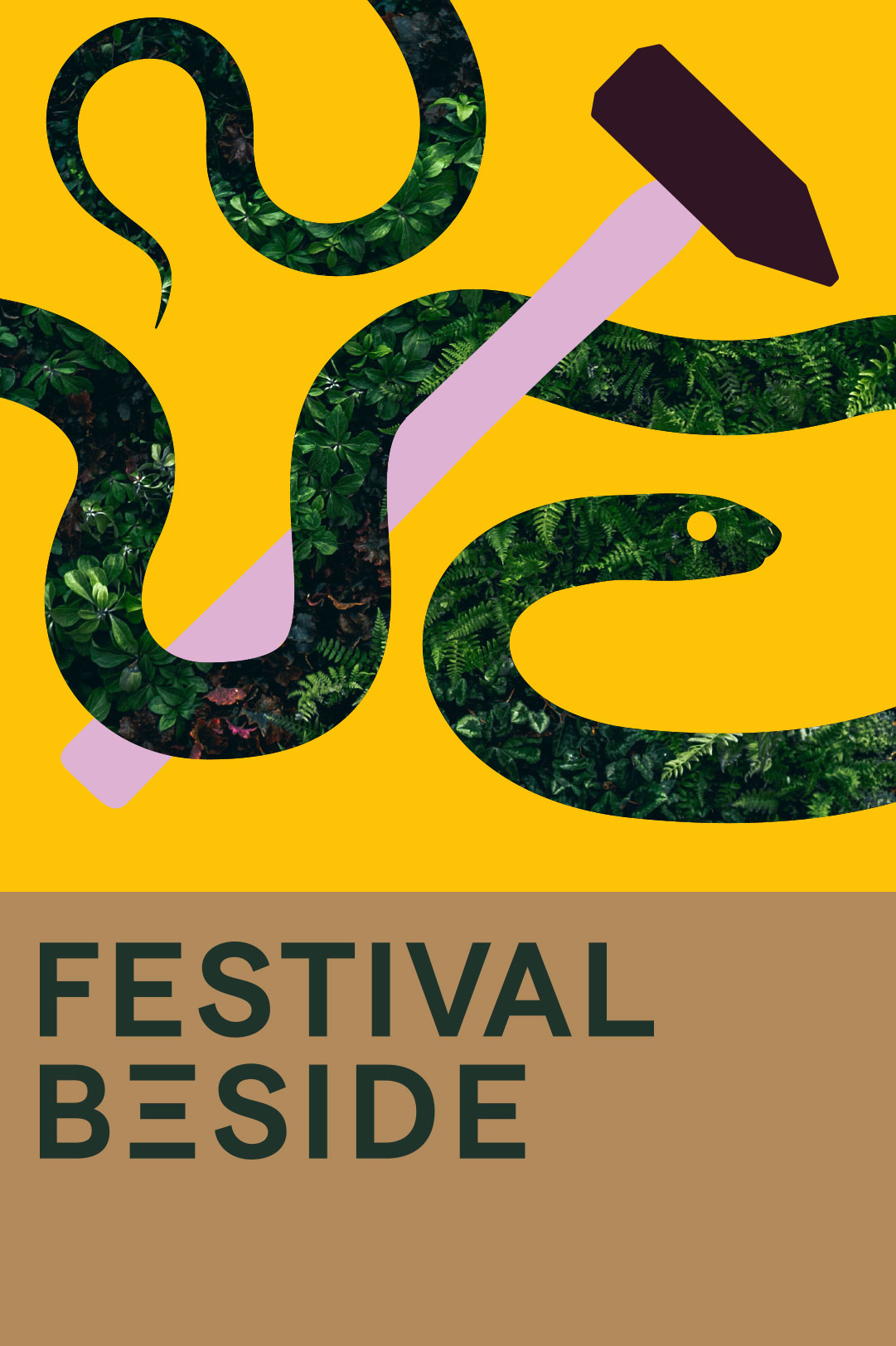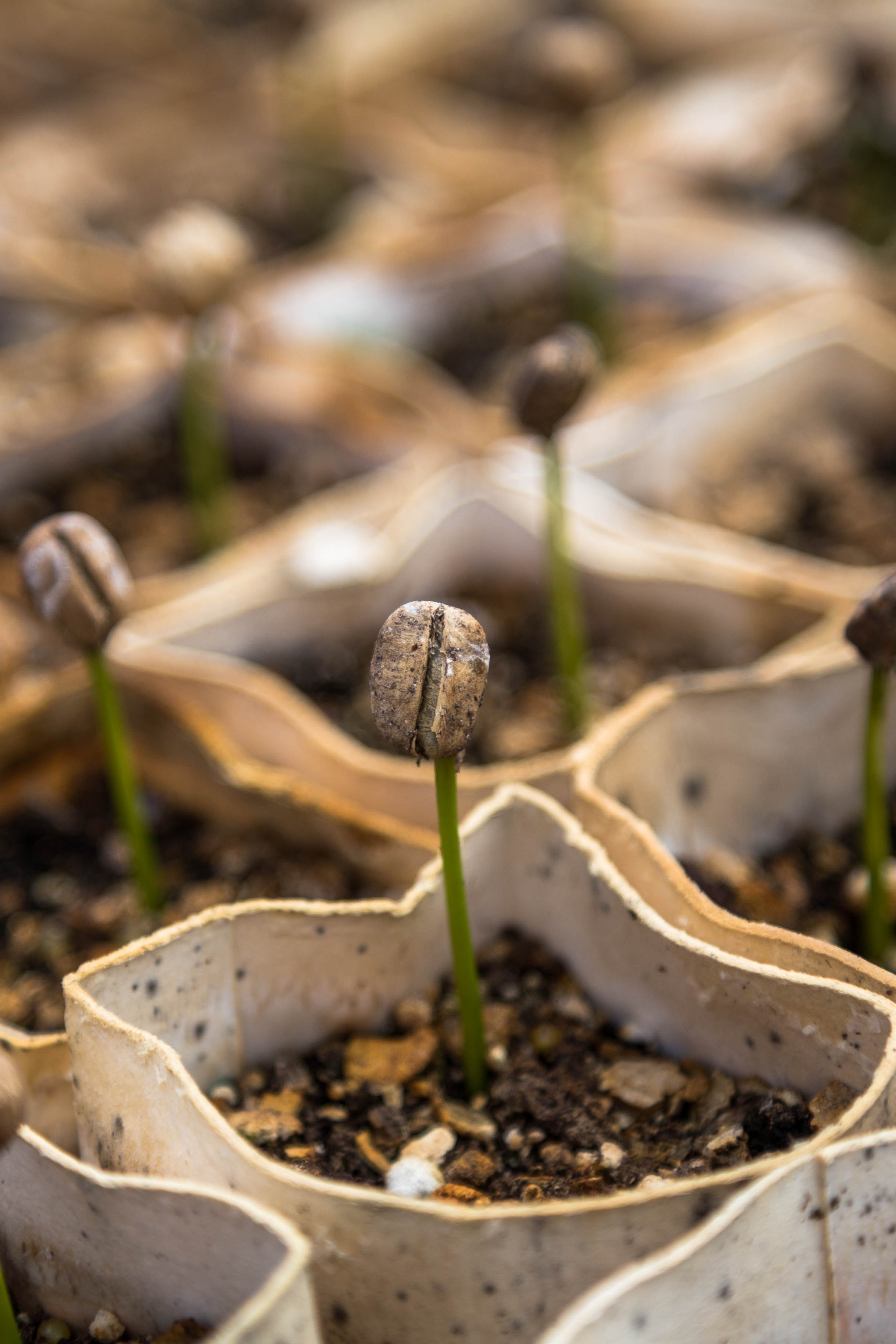Portrait
Like Honey in the Comb
At Candide, Chef John Winter Russell is concocting a blueprint for a hyperlocal, hypersocial gastronomy.
On a spring afternoon, John Winter Russell wel-comes me to Candide, the restaurant he founded in November 2015 in the basement of an old church in Griffintown, Montréal. The wooden communal tables, the open kitchen and pantry, and the chef’s frank smile all give Candide its welcoming, homestead feel. Around this time of day, the staff welcomes deliveries from local producers. Today is cheese day, so around us are boxes and boxes of Clos-des-Roches raw, organic cow’s milk cheese from La Fromagerie des Grondines. “Life is good when you can order cheese by the kilo,” Russell says. His remark is disarmingly simple, but infinitely revealing of his outlook.
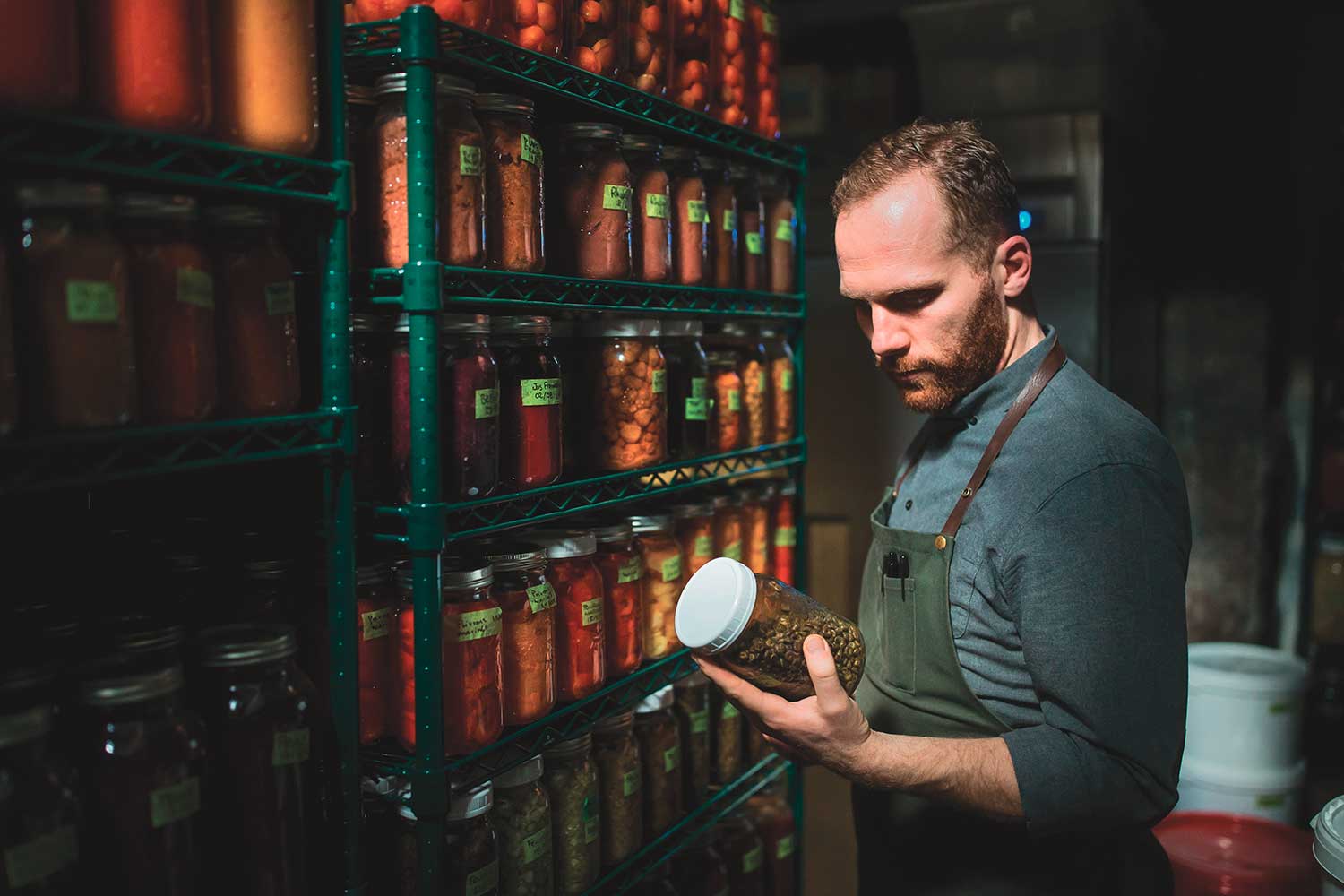
At Candide, Russell has built a small team of talented cooks and sommeliers who serve hyperlocal, vegetable-centric cuisine. And I mean hyperlocal: Lemon, pepper, white sugar, and olive oil are all on the list of “foreign” staples that don’t even make it through the front door. Fish and meat are used as garnishes—for the sake of the planet. Everything that diners find on their plates is pesticide and herbicide free. And perhaps most importantly, every single ingredient is intimately tethered to a producer from the St. Lawrence Estuary and the Province of Québec. There are only three exceptions: Russell’s friends from his native province of Ontario will send one batch of cherries and peaches per year, his mom’s friends from Nova Scotia and New Brunswick will bring seafood when they visit, and another friend from Newfoundland harvests the restaurant’s salt.
Evidently, Russell sees his producers as part of the restaurant’s extended family. But supporting them throughout the seasons is a daunting task, especially when Candide also strives to live up to their reputation for serving one of the brightest, freshest, and most diverse menus in the country. To achieve a year’s worth of dynamic flavour profiles (and to avoid the dreadful “beets four ways” in winter), Russell and his team have to stock up on fresh ingredients between May and December and transform them using a multi- tude of traditional preservation methods. As a result, no matter the season, dishes at Candide may confidently feature fresh or transformed local ingredients such as edamame, lovage, green strawberries, smoked yogurt, edible flowers, oyster mushrooms, herring, blueberries, scallops, bottarga, parsnips, fiddleheads, smelt eggs, guinea fowl, pickerel, trout lilies, plums, malted wheat . . . you get the idea.
As Russell delves into explanations of his salting, drying, canning, and fermenting techniques, I begin to grasp the full complexity of his cooking operation. While he might confidently declare that “life is good,” that doesn’t mean it’s been easy. For the past few years, Candide’s chef-owner has been pushing boundaries that few restaurants have even approached. By doing this, he’s come up with a blueprint for a new kind of hyperlocal gastronomy.

Two springs ago, South Shore biodynamic farm Cadet Roussel produced a magnificent batch of lovage, which Russell affectionately calls “celery on steroids.” (For anyone who has ever tried making a lovage salad, the learning curve is brutal: this peppery perennial should only be used in very small doses.) His team was excited when they received the farm’s first cut of the season. But soon after, they couldn’t keep up with the batches that followed. They lacked the manpower to cook and dry it all—and were unable to find any takers for the task. So Cadet Roussel had to let their lovage die. Months later, Russell came up with the idea of drying the leaves at Roussel’s farm using their industrial dehydrator. Since then, Candide and other restaurants in the region have been able to purchase fresh, dry lovage all summer long, letting nothing go to waste.
The amount of passion Russell deploys for a single (unusual) leafy green and its producer is emblematic of the chef’s radical personality and ethical values: “I wouldn’t know how to do it differently. If I can make things better, I should. If I’m not trying, then I’m being a hypocrite.” After all, he started Candide to support a community—of cooks, farmers, cheesemakers, fishermen, and winemakers—to make the world a better place and to refuse to let the planet become a “giant ball of fire,” as he says.
“Together, we want to prove that we were wrong to favour economic development over the health of our communities. I could run a small restaurant with 10 seats, three days a week, and make a living. But the volume of food I am able to serve at Candide positively affects people’s lives—and it means a lot.”
Russell is often associated with the oft-used term “social gastronomy,” from his involvement with the community kitchens created by famous Italian chef Massimo Bottura in Europe and South America (for that matter, he is currently working toward opening one of his own), and from his contributions to local food banks here in Montréal. But after speaking to him, I start to see that in fact all of his activities are acts of social gastronomy: cooking hyperlocal, ethical food; treating his staff with so much care; collaborating closely with producers; and inviting guest chefs into his kitchen to share their perspectives. When I share my hypothesis with him, Russell nods in agreement. In a very Dalai Lama-esque way, he tells me: “If we put intention into our smallest actions and repeat those infinitely, we can solve of 80 per cent of the world’s biggest problems. Personally, I’m already picturing the next 4,000 steps ahead!”
Before I leave the premises, Russell returns from his kitchen with a chunk of honeycomb from Miels d’Anicet, the renegade beekeepers from Ferme-Neuve in northern Québec. He carves out a hearty spoonful of golden honey and hands it to me. The flowery, sugary, and waxy succulence of a single bite is bliss on my tastebuds. This is how every meal ends at Candide: with the smallest of gestures filled with the greatest potential. ■
